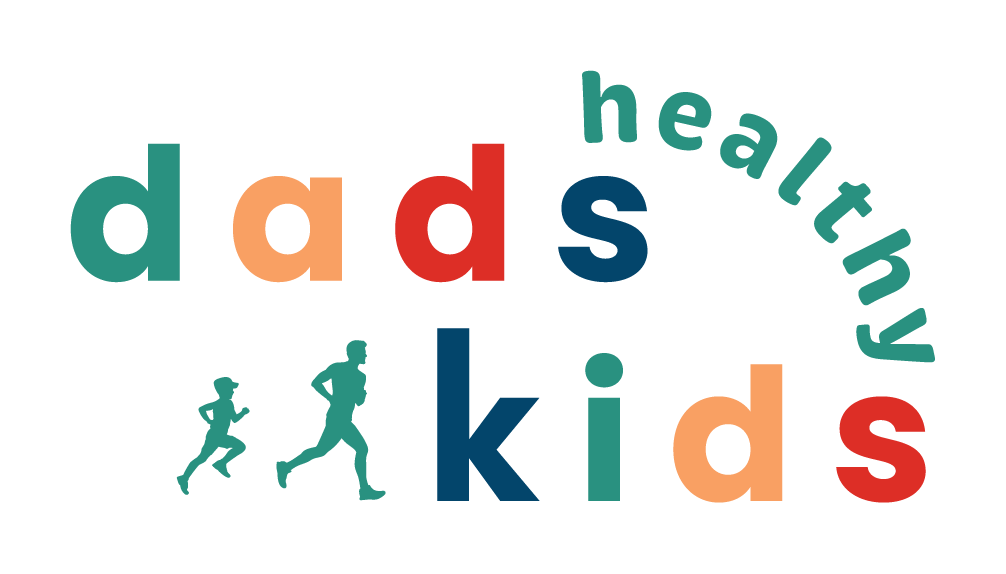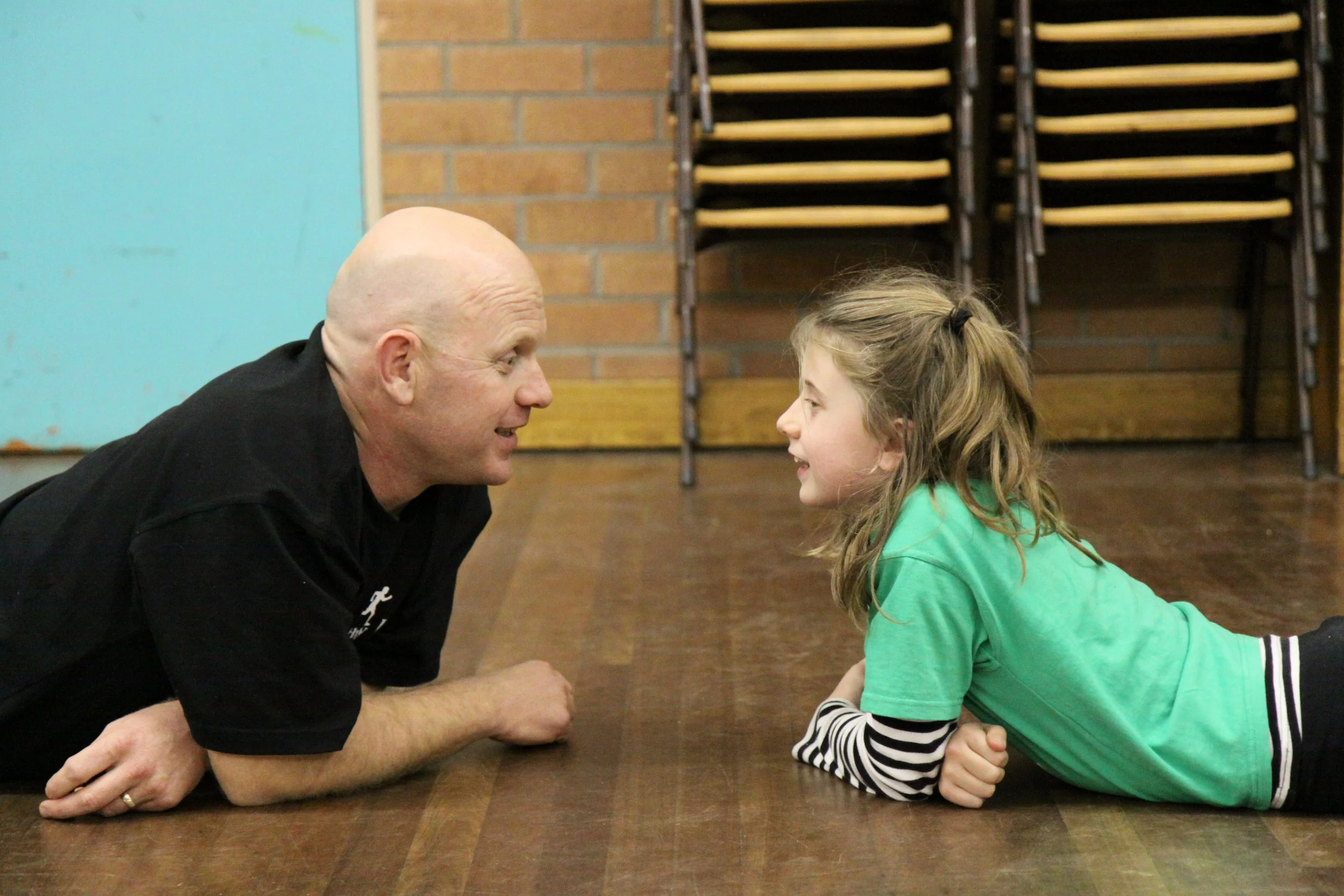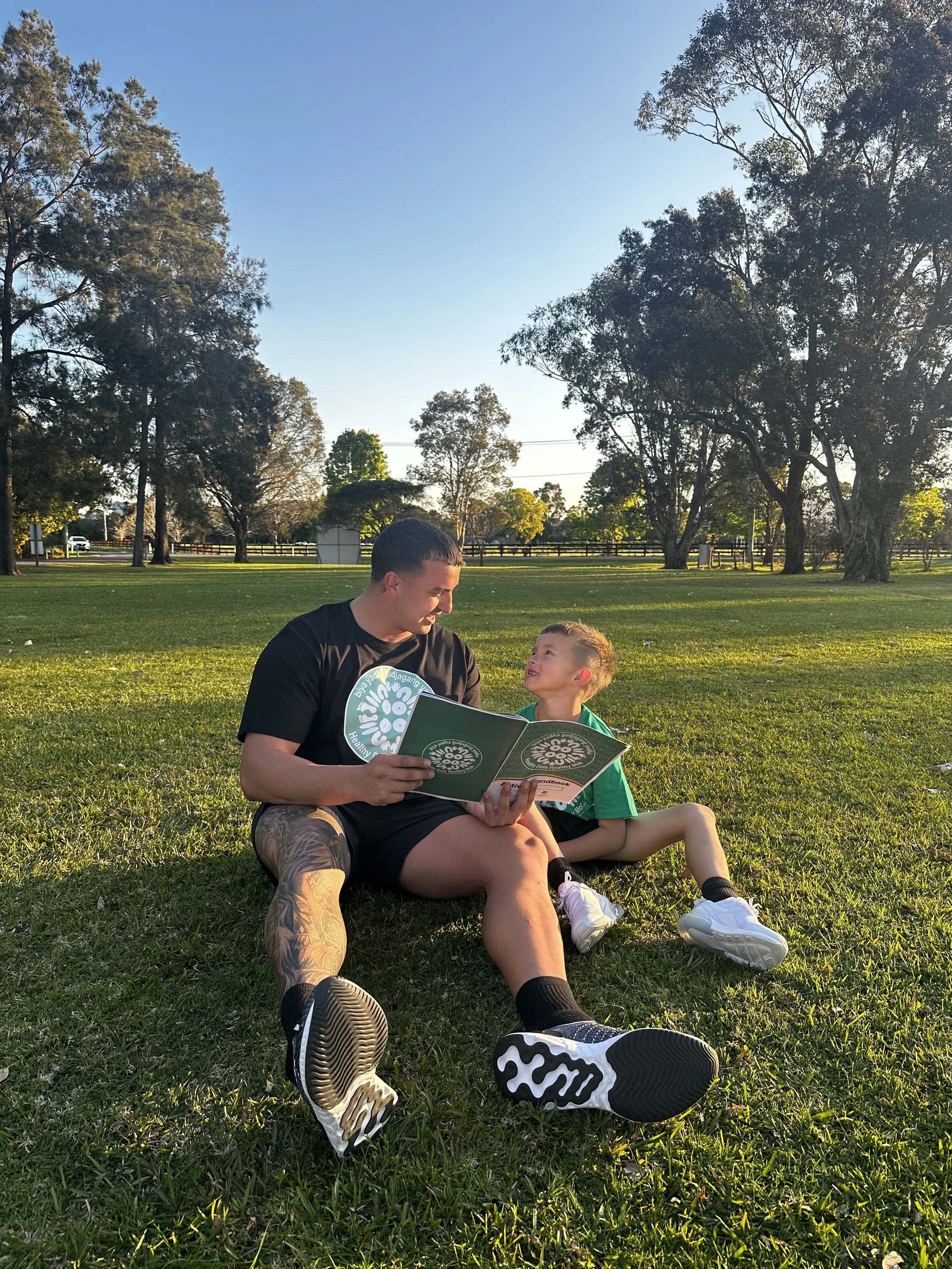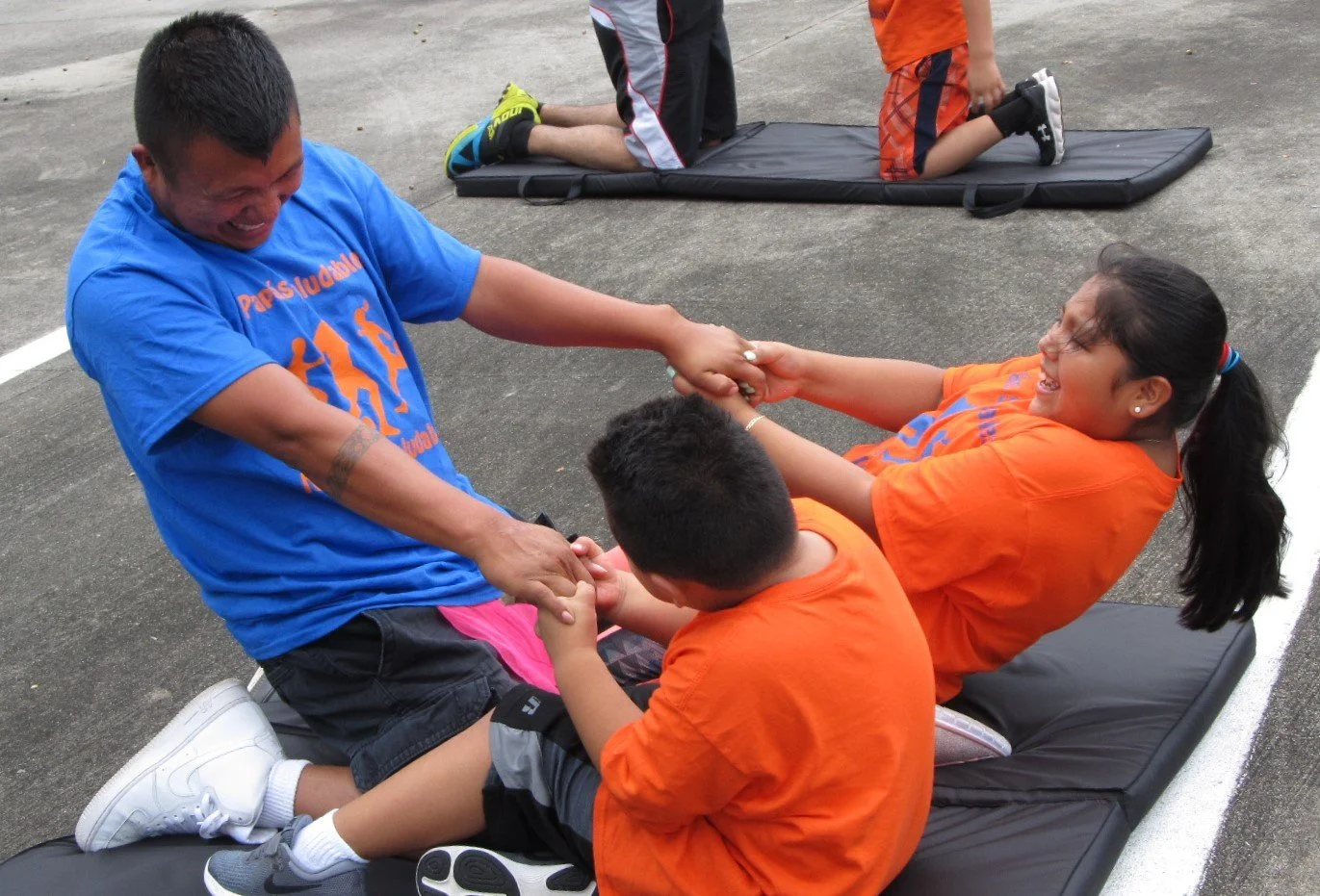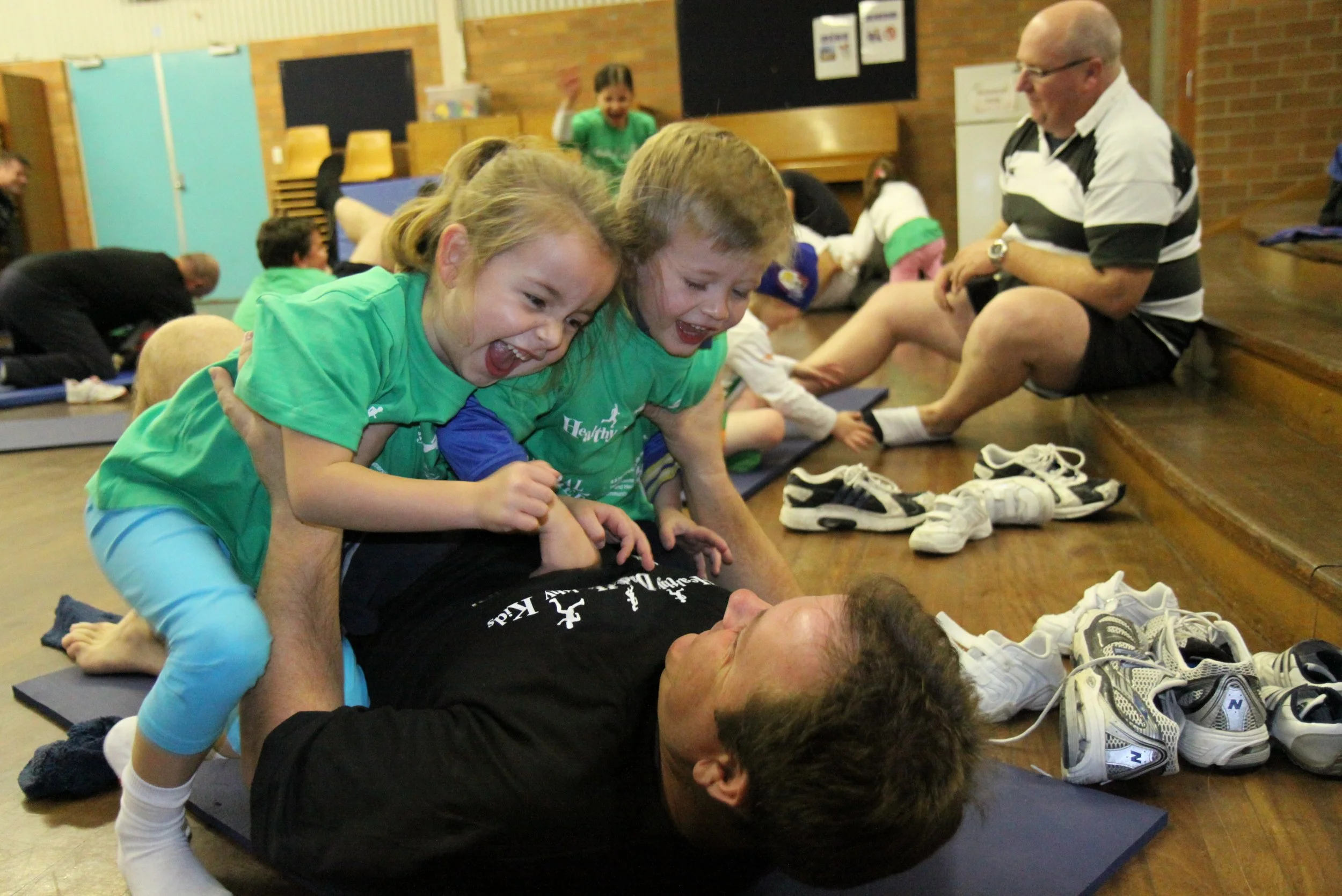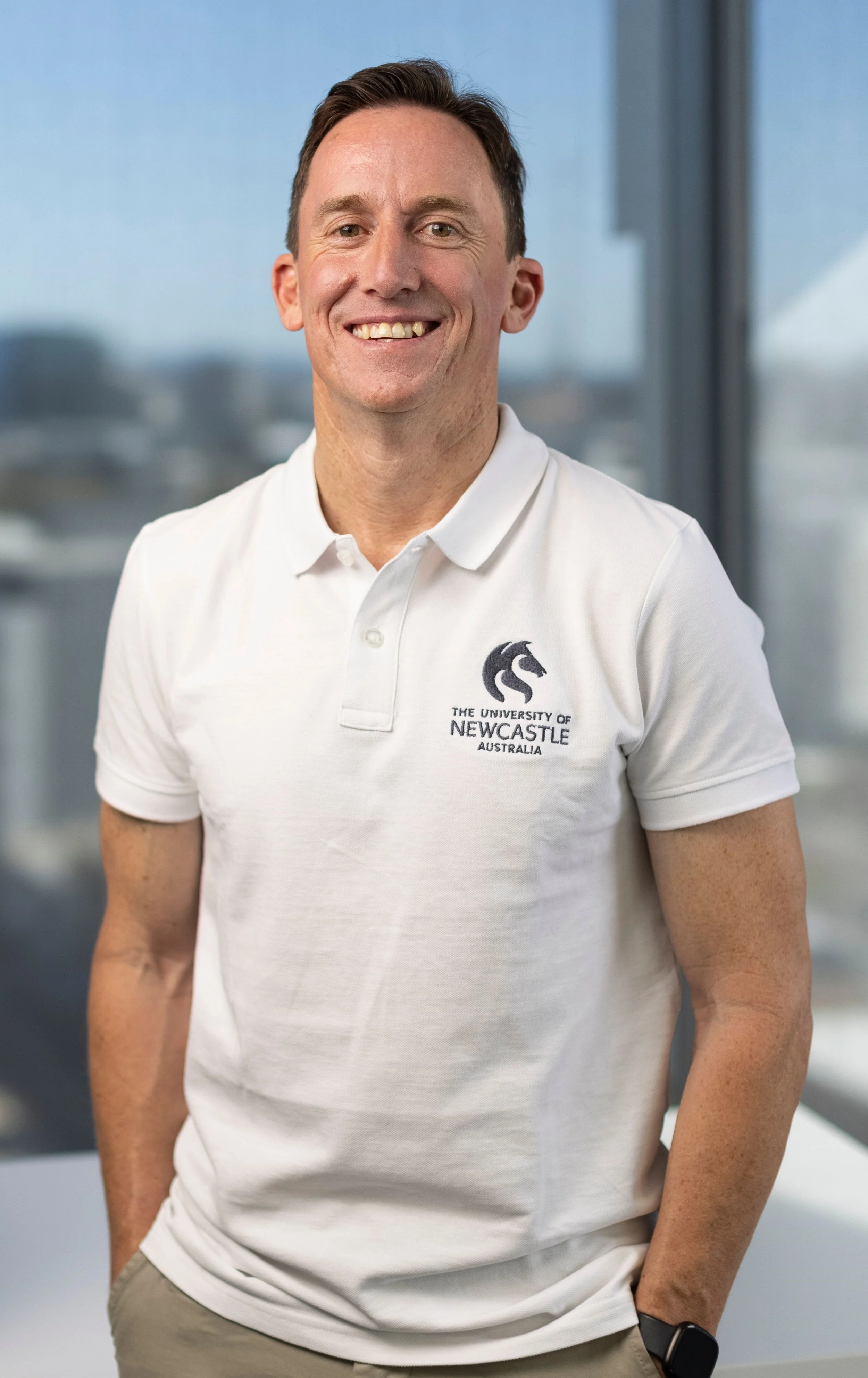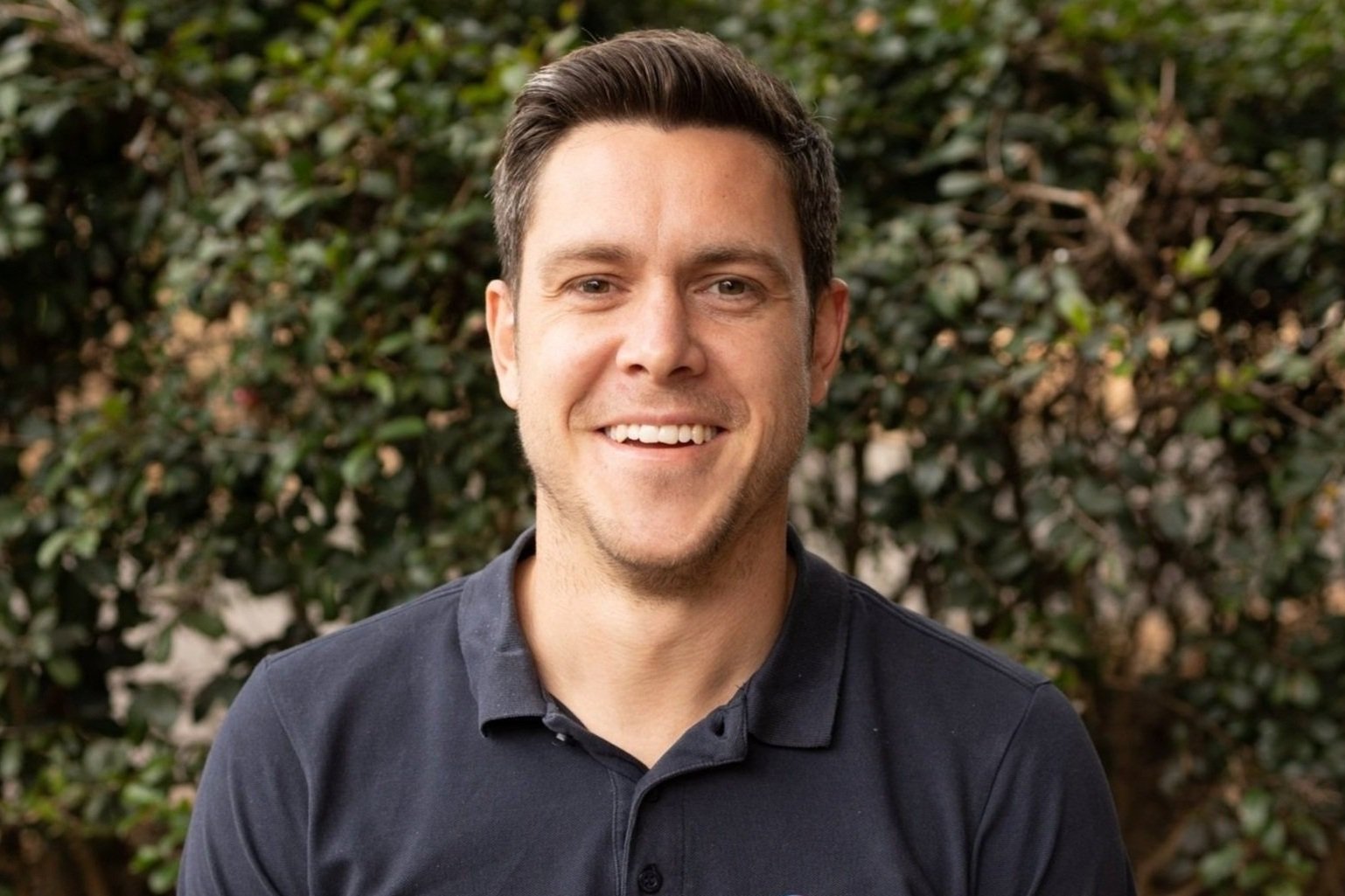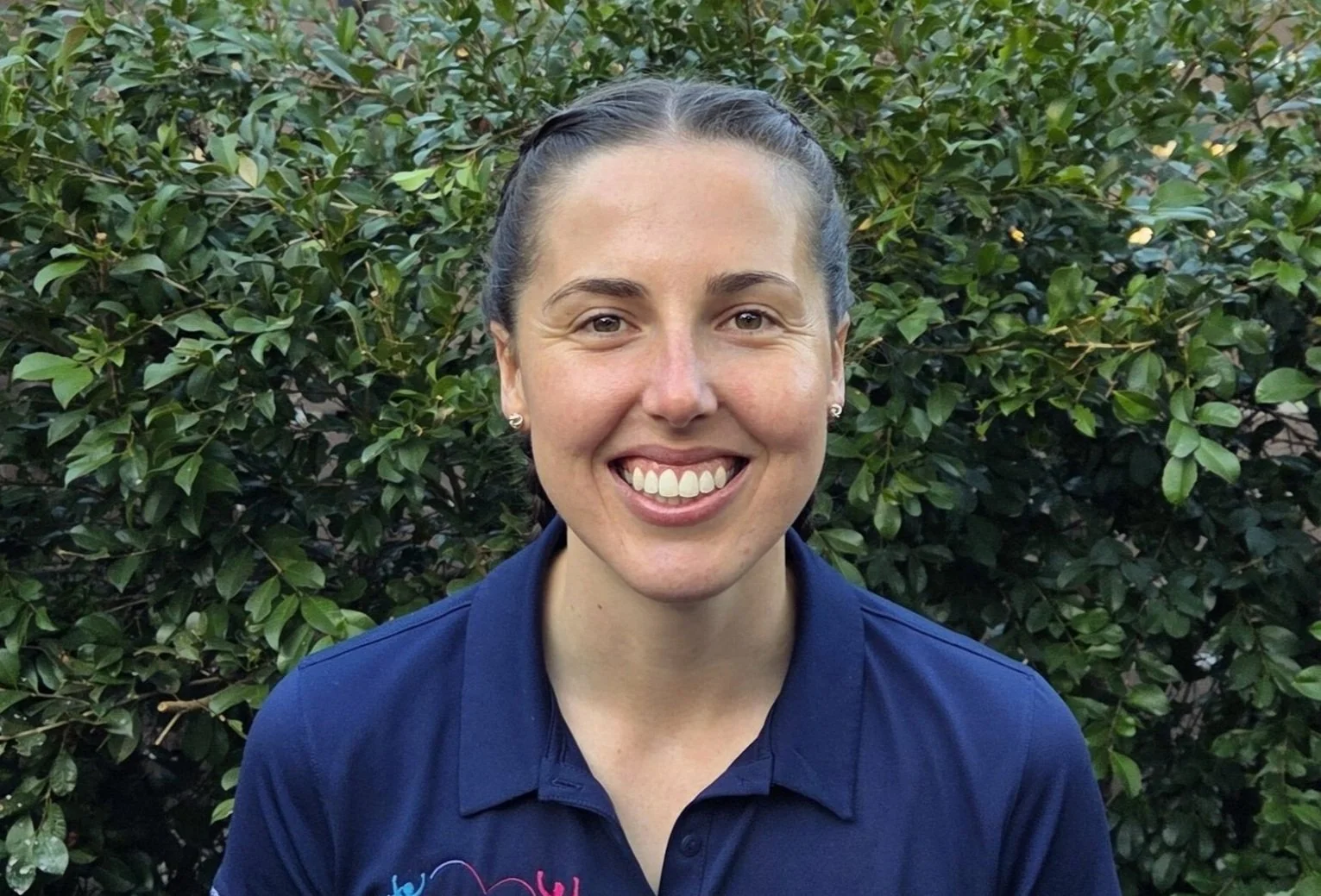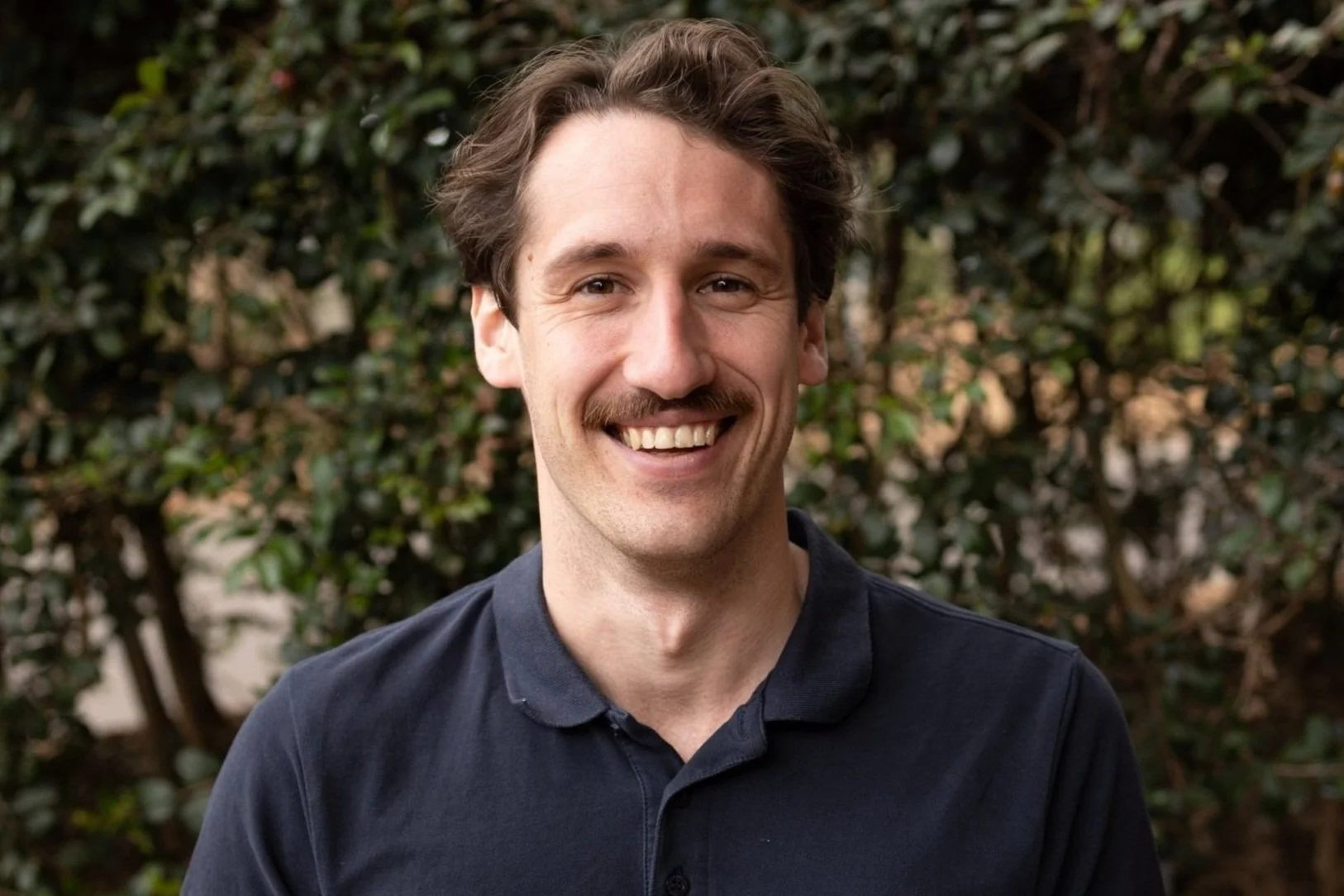
About us
Scroll down to read about Healthy Dads, Healthy Kids programs
What’s involved?
The program features:
A Dads-Only Session to understand the unique and powerful influence fathers have in the family regarding eating and activity habits, proven parenting strategies to improve nutrition and physical activity for their kids and weight management strategies for themselves.
Weekly Dads & Kids Sessions including:
i) Empowerment content covering the importance of being physically active and eating healthy food, minimising screen time and how to support dad to be healthier.
ii) Practical content focus on three key areas of Rough and Tumble Play, Fitness and Fundamental Movement Skills (e.g. throwing, catching and kicking). These sessions optimise the physical and mental health of kids, with the additional benefit of helping dad become more active.
Healthy Dads, Healthy Kids
Our programs
HDHK has been evaluated in efficacy, effectiveness and dissemination trials. Notably, the dissemination trial was delivered by trained facilitators across four low socioeconomic and regional communities in NSW and showed positive impacts to health behaviours of fathers and their children 12-months post-intervention.
-
Ashton, L. M., Young, M. D., Pollock, E. R., Barnes, A. T., Christensen, E., Hansen, V., Lloyd, A., & Morgan, P.J. (2023). Impact of a Father–Child, community-based healthy lifestyle program: qualitative perspectives from the family unit. Journal of Child and Family Studies. https://doi.org/10.1007/s10826-023-02651-8.
Williams, A., et al (2018). Dietary outcomes of overweight fathers and their children in the Healthy Dads, Healthy Kids community randomized controlled trial, Journal of Human Nutrition and Dietetics, 31(4), 523-532. DOI: 10.1111/jhn.12543
Lloyd, A., et al (2015). Paternal lifestyle-related parenting practices mediate changes in children’s dietary and physical activity behaviors: findings from the Healthy Dads, Healthy Kids community randomised controlled trial, Journal of Physical Activity and Health, 12(9), 1327-1335. https://doi.org/10.1123/jpah.2014-0367
Morgan, P.J., et al. (2014). The ‘Healthy Dads, Healthy Kids’ community randomised controlled trial: A community-based healthy lifestyle program for fathers and their children, Preventive Medicine, (61), 90-99. https://doi.org/10.1016/j.ypmed.2013.12.019
Lubans, D.R., et al (2012). Mediators of weight loss in the ‘Healthy Dads, Healthy Kids’ pilot study for overweight fathers. International Journal of Behavioural Nutrition and Physical Activity, 9(45). https://doi.org/10.1186/1479-5868-9-45
Burrows, T., et al (2012). Dietary outcomes of the Healthy Dads Healthy Kids randomised controlled trial. Journal of Pediatric Gastroenterology and Nutrition, 55(4), 408-411. DOI: 10.1097/MPG.0b013e318259aee6
Our programs
An extensive cultural adaptation process working with First Nation’s leaders led to a culturally adapted version of the program being piloted with Aboriginal fathers living on Darkinjung Country and their children in 2023.
biya yadha gudjagang yadha -Healthy Dads, Healthy Mob
-
MacDonald, J., Towney, N., Butler, K., Myles, Y., Barclay, B., Ashton, L., Morgan, P. (In Press). What does it mean to be an Aboriginal father living on Darkinjung Country? Yarning with Aboriginal fathers and father-figures on the Central Coast of NSW, Australia. AlterNative
Macdonald, J., Young, M., Barclay, B., McMullen, S., Knox, J., & Morgan, P.J. (2024). The participation of Aboriginal and Torres Strait Islander parents in Australian trials of parenting programs for improving children's health: a scoping review. TheMedical Journal of Australia. doi: 10.5694/mja2.52198
Our programs
Healthy Dads, Healthy Kids - Scottish Prisons
The Scottish Prison Service, the University of Glasgow and University of Stirling were awarded funding under the UK National Institute for Health Research Public Health Research Grant (2020-2022) to adapt and deliver the program to incarcerated fathers in Perth and Kilmarnock Prisons and their families with program delivery in 2022. Research findings to be published soon, with keen interest in the program from corrective services across the world.
Read a news article about the program HERE.
Our programs
Papás Saludables, Niños Saludables
A culturally adapted version of the program ‘Papa Saludables, Ninos Saludables’ currently runs with Latino families in Houston, Texas to improve parent-child relationships & wellbeing, in partnership with Baylor College of Medicine and the US National Institutes of Health. The program was pilot tested in a randomised controlled trial in 2018 as part of a National Institute of Health grant (2017-2019). The team have received a further five years of funding (2021-2026) to evaluate the adapted program in a community population.
-
Perez, O., Beltran, A., Isbell, T., Galdamez-Calderon, G., Baranowski, T., Morgan, P. J., & O’Connor, T. (2021.) Papas Saludables, Niños Saludables: Perspectives from Hispanic parents and children in a culturally adapted father-focused obesity program. Journal of Nutrition Education and Behavior, 53(3), 246-253. https://doi.org/10.1016/j.jneb.2020.11.006
O’Connor., et al. (2020). Cultural adaptation of ‘Healthy Dads, Healthy Kids’ for Hispanic families: applying the ecological validity model, The International Journal of Behavioral Nutrition and Physical Activity, 17(52), https://doi.org/10.1186/s12966-020-00949-0
O’Connor, T., Beltran, A., Musaad, S., Perez, O., Flores, A., Galdamez-Calderon, E., Isbell, T., Arredondo, E.M., Cardona, R.P., Cabrera, N., Marton, S.A., Baranowski, T., Morgan, P. J. (2020). Feasibility of targeting Hispanic fathers and children in an obesity intervention: "Papás Saludables Niños Saludables", Preventative Medicine, 16(6), 379-392. doi.org/10.1089/chi.2020.0006
Our programs
Healthy Dads, Healthy Kids - Scottish Premier League Football (SPFL) Trust
In 2023/24 HDHK was piloted at Falkirk FC and Kilmarnock FC to promote positive parenting and father-child interaction, in response to the Scottish Government highlighting diet, activity and weight as important public health challenges. The response and feedback from all parties involves were overwhelmingly positive.
Our programs
Starke Väter, Starke Kinder
A research team from the Leibniz Institute for Prevention Research and Epidemiology were awarded funding from the German Ministry of Health to adapt and evaluate the program for low SES communities in Bremen, Germany over 3 years (2021-2024) with research to be published imminently.
Our programs
Healthy Dads, Healthy Kids - UK
In 2016-2018 Healthy Dads, Healthy Kids was adapted and delivered in socioeconomically disadvantaged, ethnically diverse localities in West Midlands, UK in partnership with the University of Birmingham and the UK Fatherhood Institute.
-
Jolly, K., Griffin, T., Sidhu, M., Adab, P., Burgess, A., Collins, C., Daley, A., Entwistle, A., Frew, E., Hardy, P., Hurley, K., Jones, L., McGee, E., Pallan, M., Sun, Y., Young, M., & Morgan, P. J. (2020) A weight management programme for fathers of children aged 4–11 years: cultural adaptation and the Healthy Dads, Healthy Kids UK feasibility RCT, Public Health Research, 8(2), doi.org/10.1136/bmjopen-2019-033534
Griffin, T., Sun. Y., Sidhu, M., Adab, P., Burgess, A., Collins, C., Daley, A., Entwistle, A., Frew, E., Hardy, P., Hurley, K., Jones, L., McGee, E., Pallan, M., Young, M., Morgan, P.J. & Jolly, K. (2019). Healthy Dads, Healthy Kids UK, a weight management programme for fathers: feasibility RCT, BJM Open, 9:e033534, doi: 10.1136/ bmjopen-2019-033534
Meet the Founder
Phil is Co-Deputy Director at the Centre for Active Living and Learning at the University of Newcastle, Australia. As the father of three teenage girls, Phil is very aware of the important role fathers play in all aspects of their children’s lives. He is passionate about promoting good eating and physical activity behaviours for all fathers and their families, and this has been the focus of his research over the past 15 years. Phil’s work has been published widely and he has won awards for the quality of both his research and his teaching. In 2020, Phil was awarded the Faculty of Education & Arts Excellence Award for International Engagement. This award recognised Phil’s outstanding performance in the promotion of intranational engagement and advancement. Phil has contributed towards facilitating the faculty’s capability in forming new global partnerships through HDHK programs.
Professor Philip Morgan
Meet the current University of Newcastle Project Team
FAQs
-
Built on decades of research, the program is evidence-based in its development but also it’s impact. See the publications outlining the life-changing impact of this program.
Macdonald, J., Young, M., Barclay, B., McMullen, S., Knox, J., & Morgan, P.J. (2024) The participation of Aboriginal and Torres Strait Islander parents in Australian trials of parenting programs for improving children's health: a scoping review. TheMedical Journal of Australia. doi: 10.5694/mja2.52198
Ashton, L. M., Young, M. D., Pollock, E. R., Barnes, A. T., Christensen, E., Hansen, V., Lloyd, A., &Morgan, P.J. (2023). Impact of a Father–Child, community-based healthy lifestyle program: qualitative perspectives from the family unit. Journal of Child and Family Studies.https://doi.org/10.1007/s10826-023-02651-8
Perez, O., Beltran, A., Isbell, T., Galdamez-Calderon, G., Baranowski, T., Morgan, P. J., & O’Connor, T. (2021.) Papas Saludables, Niños Saludables: Perspectives from Hispanic parents and children in a culturally adapted father-focused obesity program. Journal of Nutrition Education and Behavior, 53(3), 246-253. https://doi.org/10.1016/j.jneb.2020.11.006
O’Connor, T., Beltran, A., Musaad, S., Perez, O., Flores, A., Galdamez-Calderon, E., Isbell, T., Arredondo, E.M., Cardona, R.P., Cabrera, N., Marton, S.A., Baranowski, T., Morgan, P. J. (2020). Feasibility of targeting Hispanic fathers and children in an obesity intervention: "Papás Saludables Niños Saludables", Preventative Medicine, 16(6), 379-392. doi.org/10.1089/chi.2020.0006
Jolly, K., Griffin, T., Sidhu, M., Adab, P., Burgess, A., Collins, C., Daley, A., Entwistle, A., Frew, E., Hardy, P., Hurley, K., Jones, L., McGee, E., Pallan, M., Sun, Y., Young, M., & Morgan, P. J. (2020) A weight management programme for fathers of children aged 4–11 years: cultural adaptation and the Healthy Dads, Healthy Kids UK feasibility RCT, Public Health Research, 8(2), doi.org/10.1136/bmjopen-2019-033534
Griffin, T., Sun. Y., Sidhu, M., Adab, P., Burgess, A., Collins, C., Daley, A., Entwistle, A., Frew, E., Hardy, P., Hurley, K., Jones, L., McGee, E., Pallan, M., Young, M., Morgan, P.J. & Jolly, K. (2019). Healthy Dads, Healthy Kids UK, a weight management programme for fathers: feasibility RCT, BJM Open, 9:e033534, doi:10.1136/ bmjopen-2019-033534
Morgan, P.J., Collins, C.E., Lubans, D.R., Callister, R., Lloyd, A.B., Plotnikoff, R., Burrows, T.L., Barnes, A.T., Pollock, E.R., Fletcher, R., Okely, A.D., Handley, S., & Young, M.D. (2019). Twelve-month outcomes of a father-child lifestyle intervention delivered by trained local facilitators in under-served communities: The Healthy Dads Healthy Kids dissemination trial, Translational Behavioural Medicine, 9(3), 560-569, doi.org/10.1093/tbm/ibz031
Williams, A., et al (2018). Dietary outcomes of overweight fathers and their children in the Healthy Dads, Healthy Kids community randomized controlled trial, Journal of Human Nutrition and Dietetics, 31(4), 523-532. DOI: 10.1111/jhn.12543
Lloyd, A., et al (2015). Paternal lifestyle-related parenting practices mediate changes in children’s dietary and physical activity behaviors: findings from the Healthy Dads, Healthy Kids community randomised controlled trial, Journal of Physical Activity and Health, 12(9), 1327-1335. DOI: 10.1123/jpah.2014-0367
Morgan, P.J., et al. (2014). The ‘Healthy Dads, Healthy Kids’ community randomised controlled trial: A community-based healthy lifestyle program for fathers and their children, Preventive Medicine, (61), 90-99. DOI: 10.1016/j.ypmed.2013.12.019
Lloyd, A., et al (2014). Impact of the ‘Healthy Dads, Healthy Kids’ lifestyle program on the activity and diet related parenting practices of fathers and mothers. Pediatric Obesity, 9(6), e149-55. https://doi.org/10.1111/ijpo.248
Lloyd, A.B., et al (2014). Maternal and paternal parenting practices and and their influence on children's adiposity, screen-time, diet and physical activity, Appetite, 79, 149-157. DOI: 10.1016/j.appet.2014.04.010
Burrows, T., et al (2012). Dietary outcomes of the Healthy Dads Healthy Kids randomised controlled trial. Journal of Pediatric Gastroenterology and Nutrition, 55(4), 408-411. DOI: 10.1097/MPG.0b013e318259aee6
Lubans, D.R., et al (2012). Mediators of weight loss in the ‘Healthy Dads, Healthy Kids’ pilot study for overweight fathers. International Journal of Behavioural Nutrition and Physical Activity, 9(45). https://doi.org/10.1186/1479-5868-9-45
Fletcher, R., et al (2011). Fathers’ perceptions of rough-and-tumble play: Implications for early childhood services. Australasian Journal of Early Childhood, 36(4), 131-138. DOI: 10.1177/183693911103600417
Morgan, P.J., et al . (2011). The ‘Healthy Dads, Healthy Kids’ community effectiveness trial: study protocol of a community-based healthy lifestyle program for fathers and their children. BMC Public Health, 11, 876. https://doi.org/10.1186/1471-2458-11-876
Morgan, P.J., et al (2011). The ‘Healthy Dads, Healthy Kids’ randomized controlled trial: Efficacy of a healthy lifestyle program for overweight fathers and their children. International Journal of Obesity, 35(3), 436-447. DOI: 10.1038/ijo.2010.151
-
Parent-child programs have predominantly targeted and engaged mothers. When programs are open to both parents, very few dads sign up. Our Healthy Dads, Healthy Kids programs are designed to solely engage fathers/ father-figures.
Mums/partners are encouraged to engage with the program home tasks, have discussions with their partner and children and are welcome to complete home activities with any of their other children.
-
Absolutely, we welcome their attendance with a significant male figure in their life. This might be a step-father, grandfather, uncle, older brother or trusted family friend.
The program is designed to educate and motivate male role models as the agent for changing a child’s physical activity levels, sport skills and social-emotional wellbeing. Unfortunately, we are unable to have children attend the program with their mothers.
-
Not at all, the program caters for all ability levels, from those who have never played sport, to those who play competitively. Facilitators and fathers are taught evidence-based, sports pedagogy to help them to modify activities to make them easier or harder, maximising kids’ enjoyment, engagement and skill development.
-
Yes! Healthy Youngsters, Healthy Dads is designed for fathers/father-figures and their children - sons and daughters alike.
In Healthy Youngsters, Healthy Dads, families learn how to adopt and role model healthy eating and physical activity behaviours essential to improve the quality of life of families and communities. Dads become role models, helping their children develop confidence and competence in making positive lifestyle choices through physical activity, nutrition, and healthy habits.
-
We do! Daughters & Dads Active & Empowered is an evidence-based program that brings together fathers/father-figures & their primary school-aged daughters to promote physical activity, enhance sport skills, boost wellbeing, strengthen the father-daughter bond & advance gender equity.



